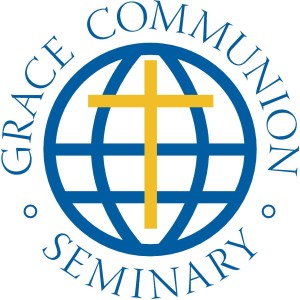This report is from Educational Strategy Task Force member Charles Fleming, who also serves as mission developer in GCI’s Caribbean region.
In late 2015, GCI President Joseph Tkach set up the Education Strategy Task Force (ESTF), chaired by Dr. Gary Deddo, to assess the scope and accessibility, within GCI, of resources for educating and training our members, ministry leaders and pastors (for an additional report on the ESTF, click here).
Two formal educational resources
The Task Force recently concluded its evaluation, reporting that it is impressed by the focus and quality of instruction available through Ambassador College of Christian Ministry (ACCM) and Grace Communion Seminary (GCS), especially by the way they address the needs of different groups within the church. ACCM offers undergraduate-level courses leading to a diploma and GCS offers graduate-level courses leading to a master’s degree. The Task Force recommended that national and regional leaders advertise these resources within their respective areas so members are more aware of their availability. Anyone interested in taking ACCM or GCS courses can get information at www.gci.org/education.
Announcing a new, informal resource: 40 Days of Discipleship
In addition to these formal education courses, the Task Force identified a need for less formal and self-guided educational resources. We’re happy to announce that one is now available online at no (or little) cost. Developed by Michael Morrison (Dean of Faculty at GCS and Task Force member), this helpful resource is titled 40 Days of Discipleship. It draws on the voluminous collection of online articles and video/audio recordings on our GCI.org website—compiling them into three series covering in increasing depth a comprehensive range of the doctrinal and theological understandings that have nourished GCI’s renewal as a denomination. To access the first series in 40 Days of Discipleship, click here; for the second series, click here; and for the third series, click here. We encourage our members, ministry leaders and pastors to go online to see if these self-guided courses would be helpful for their personal study, small group discussions, and in preparing sermons and Bible studies.
In each series, ten major topics are covered, with approximately 2,500 words assigned for each day’s reading (to complete the readings in 40 days). The first series gives an overview of major teachings. The second visits the same topics again for greater depth, and the third covers the same ten topics again. Together, these three series add up to a comprehensive overview of each topic. Each series is now available for online reading, as a PDF download, and (for a small cost) as a paperback or spiral-bound workbook.
Further developments coming
The ESTF hopes all GCI members will become aware of these educational resources, and find for themselves those that are most appropriate to their needs. We trust the result will be the strengthening and encouragement of all of GCI.
While the ESTF has completed its initial assignment and has made a number of recommendations to Dr. Tkach, members of the Task Force have committed to meet periodically to offer their help with the implementation of any of its recommendations that may be approved. We ask that church members continue in prayer for us as we seek to continually improve the range, quality and accessibility of educational resources to be used by our members, ministry leaders and pastors, along with others who are interested in our Incarnational Trinitarian theology. GCI is committed to doing its part to provide excellent educational resources for the equipping of the saints for the work of Jesus’ ministry to the world.





What is available for one that has completed ACCM but doen’t have the college education to take the seminary courses.
Though Grace Communion Seminary (GCS) formerly required all applicants to have a bachelor’s degree, that is no longer the case. People who have completed high school and are at least 21 years old can now enter the GCS Continuing Education Program. In most cases, these students will then be addmitted into one of GCS’s master’s degree programs after having successfully completed seven GCS courses. (For further details see the GCS Academic Catalog, page 30.)
If studying at GCS or Ambassador College of Christian Ministry (ACCM) is not an option, a person could enter into an intensive self-directed course of study in theology. Doing so would mean carefully studying significant numbers of challenging theological books. Here is a recommended list:
a. One-volume theologies:
• A Trinitarian writer: Michael Jinkins, Invitation to Theology
• A biblical and historical survey: Alan Johnson and Robert Webber, What Christians Believe
• A popular overview: C.S. Lewis, Mere Christianity, books 2-4 (free audio at https://archive.org/details/C.S.LewisMereChristianityReadByRolfVetter)
b. Evangelical reference works:
• Walter Elwell, Evangelical Dictionary of Theology
• Millard Erickson, Christian Theology
• Alister McGrath, Christian Theology
c. Introductions to Torrance theology
• Elmer Colyer, How to Read T. F. Torrance
• J.B. Torrance, Worship, Community, and the Triune God of Grace
• Gerrit Scott Dawson, ed., An Introduction to Torrance Theology
• Gary Deddo, The Holy Spirit in the Theology of Thomas F. Torrance
d. Books by T.F. Torrance
• Mediation of Christ
• Incarnation
• Atonement
• Ground and Grammar of Theology
e. Books about Karl Barth
• T.F. Torrance, Karl Barth: Biblical and Evangelical Theologian
• T.F. Torrance, Karl Barth: An Introduction to His Early Theology
• George Hunsinger, How to Read Karl Barth
f. Books by Karl Barth
• Dogmatics in Outline
• The Humanity of God
• Evangelical Theology
g. Books about Calvinism vs. Arminianism
• Why I Am Not an Arminian
• Why I Am Not a Calvinist
• For Calvinism
• Against Calvinism
• Young, Restless, No Longer Reformed
h. Key Topics
• The Trinity:
1. Darrell Johnson, Experiencing the Trinity
2. Michael Reeves, Delighting in the Trinity
• Christian Life:
1. Michael Reeves, Delighting in Christ
2. Dietrich Bonhoeffer, Life Together
3. Gary Deddo, The Christian Life and Our Participation in Christ’s Continuing Ministry
• The Kingdom of God:
1. George Ladd, A Theology of the New Testament